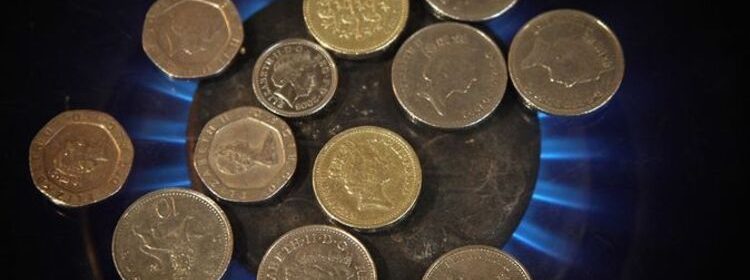Ofgem admits response to energy crisis ‘shock’ was slow – £200m of customer money missing

Ofgem price cap ‘fundamental problem’ says Ecotricity founder
We use your sign-up to provide content in ways you’ve consented to and to improve our understanding of you. This may include adverts from us and 3rd parties based on our understanding. You can unsubscribe at any time. More info
Almost half of the UK’s energy firms went bust last year, leaving millions of consumers to be transferred to new providers. Speaking today, chief executive Jonathan Brearley said: “Financial regulation needs to be tougher, we need a retail sector that’s more resilient and more able to deal with the kind of shock that we’ve seen.” Mr Brearley told the Business, Energy and Industrial Strategy Committee: “We accept that had we done this sooner it would have been better for customers” He added that around £200m of consumer credit was thought to have gone missing with failed suppliers.
The recently announced rise in the energy price cap includes £2.45 on energy bills to help cover this, however, Mr Brearley suggested the final figure could end up needing to be as high as £10.
Asked it was right for this to come from energy bills, Mr Brearley insisted this was the only option.
Mr Brearley revealed there had been proposals to make suppliers return unused customer credit but these hadn’t been finalised with concerns they could make it harder for small suppliers to operate.
He added: “I think we should ring fence customer credit balances more firmly, so I agree with hindsight we should have ring fenced customer credit balances more firmly.”


A large number of the firms who left the market in 2021 were smaller firms who were found to have not sufficiently hedged against soaring energy prices.
Energy firms usually hedge by spreading out the purchase of their energy supplies over time to avoid being hit by sudden spikes in cost.
During the meeting, Mr Brearley was challenged on the monitoring of new market entrants including accounts some had set up energy businesses in their bedrooms.
Mr Brearley admitted “there was a clear ambition to diversify supply” adding that “with hindsight we’d have done something different.”

The committee also heard from founder of OVO Energy Stephen Fitzpatrick who said he would welcome a more transparent relationship with Ofgem.
He explained: “It’s been pretty obvious for many years that the quality of companies entering the energy retail market, and their ability to manage the complexity and rigour that the energy market requires, just hasn’t been there.”
He added: “If we design the market system right then we can have fewer participants that are better equipped to support consumers.”
Ofgem revealed last week that rising energy prices and the cost of dealing with bankrupt firms would see the energy price cap rise by £693 in April, prompting fears for the cost of living.
DON’T MISS:
EU will ‘affirm sovereignty’ against Facebook [ANALYSIS]
M&S tie up proves winner for Ocado [SPOTLIGHT]
BP profits soar to £9.5BILLION as Britons hammered by rising fuel [LATEST]

Peter Smith, director of policy and advocacy at National Energy Action, told the committee 6.5 million UK households would struggle to keep their homes warm and lit.
He warned: “People used to talk about being the choice between heating or eating but it’s getting to a situation where people aren’t able to do either satisfactorily.”
Recently, Chancellor Rishi Sunak unveiled a new scheme to provide a £200 discount to households in October which will then be repaid over the following years.
A £150 council tax rebate will also be given to households in tax bands A to D in April to help with the cost of living.
On Government support, Mr Fitzpatrick pointed out that average bills had gone up around £1000 while the Warm Home Discount had only risen by £10.
Source: Read Full Article
